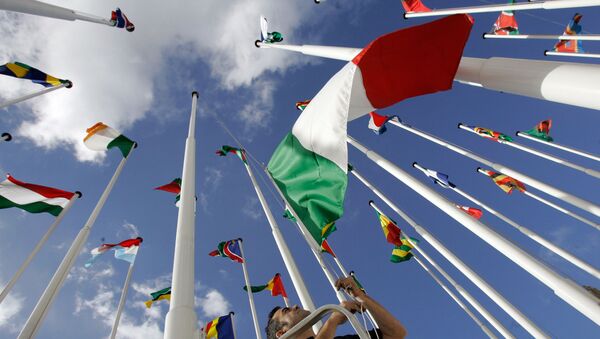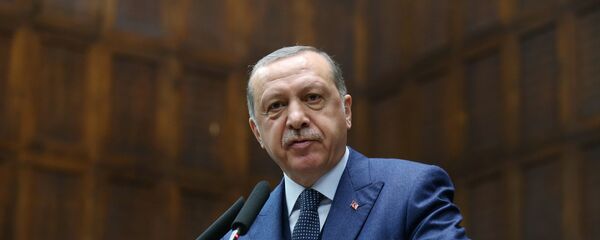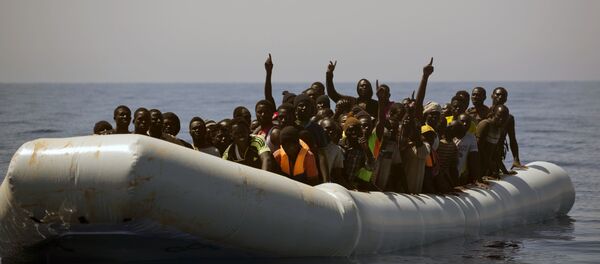His Excellency Ivo Josipović, former President of the Republic of Croatia, who attended the MEDays forum in Morocco, shared his view on the benefits of the European Union in general and for his country in particular.
Sputnik: The Republic of Croatia joined the EU just 6 years ago, in 2013. What 3-5 key benefits can you name that Croatia has received as a member of the EU that it could not achieve while it was a non-EU member?
Ivo Josipović: Firstly, security; because the European Union is the most successful peace project known. We consider, especially myself, the European Union primarily as a peace project. Secondly, we benefitted economically; we became part of a big market with many new possibilities for our entrepreneurs. Thirdly, we had financial support from the European funds; probably, we were not the best in using it, but the benefits are very visible in Croatia. And finally, we improved the so-called European values, that means human rights, democracy, tolerance; and I hope we are going to be even better.
Sputnik: You’ve mentioned that the EU was initially a "peace project". Could you explain in more detail, what you mean by this?
Ivo Josipović: If you look at the history, Europe was always a territory with very bloody wars; from the beginning of the first century until today, there were always wars and fights. After the Second World War, the idea to keep peace in Europe was to make an alliance between countries that enter the wars so frequently, especially France and Germany. It started as an economic project, but its basis was to ensure peace. Then, starting from the 1950s, the European Union widened its competences; and definitely it’s now crystal clear that it’s not only an economic project, it’s not only an educational project, it’s not only a cultural project, but it’s also keeping nations far from attempts to use weapons in resolving their problems. So, despite the weaknesses of the European Union, it is probably the most successful alliance in human history.
Sputnik: The UK, which joined the European Economic Community in 1973, wants to leave the so-called “peace project”. How do you explain this?
Ivo Josipović: Primarily, I think it’s the result of populism; because this idea of Brexit was born in the media, in some political circles, and populist politicians and media somehow built this story Brexit, and finally they decided [to leave]. But that’s also a matter of democracy; they decided to leave and to try alone. Definitely, they are going to suffer huge economic consequences, the rest of Europe as well. But that’s life; it’s like marriage, we divorce and we find new marriages, and in many cases we go back to the old partners. So, I hope that Great Britain will be back.
Sputnik: All the plenary session’s participants have agreed that Europe is now in a crisis of democracy. Could you name the key mistakes made by Europe that have led to this situation?
Ivo Josipović: I’m not sure that the European Union itself is mainly guilty for the crisis. I think that the crisis is more generated from particular countries, almost all countries. Because due to historical circumstances in particular countries, they somehow allowed populists to take important roles on political scene. But that’s also part of democracy. The key issue of populists is that they are not outlaws; they are following democratic procedures, they are speaking in Parliament, they are occupying the media, but there is not enough resistance against their unrealistic and harmful political ideas. That’s the problem.
So, the reasons for populism are different; in one country it’s nationalism, in another country it’s fear against refugees. In most countries it’s caused by losing confidence in political elites; but in some countries, like the United States, the main populist is also part of the elite, a very significant member of the political and economic elite. So, it’s some kind of a strange mixture of different political circumstances in different countries. In those areas, in those countries, in those regions or in those cities, when populists won elections, in almost all cases we had bad consequences because they don’t know how to govern properly. That’s one of the important problems.
But from the other side, we have a different example. For example, the Prime Minister of Greece, Tsipras, started as a populist; but finally he did an excellent job for his country. He signed agreements with creditors and, together with the Macedonian prime minister, he solved one of the important European conflicts between Greece and Macedonia about identity, membership in different international organisations, and so on. So, finally he served his office not as a populist but as a very serious statesman.
Sputnik: During the plenary session, you said “No one dies for the EU, but for freedom of their own country”. In your view, what are the key factors that still unite the EU in this “century of migration” and “crisis of democracy”?
Ivo Josipović: Of course, in our countries, the melting force is the feeling that we belong to each other, that we are part of something in our society. We love our countries; we have our national identity. Europe is, historically speaking, a very young entity; so I think we need some time to build a European identity. There is one portion of European identity, but to really have an efficient European Union we have to increase European identity. That doesn’t mean that we are going to abandon our national identity; I will always be a Croat, but I’m also European and that feeling must be built somehow not only spontaneously but also the European Commission and Governments should do something about increasing European identity.
Sputnik: In what way did the migration crisis affect the Republic of Croatia?
Ivo Josipović: We are on the route. Many migrants willing to go to Western Europe are willing to pass through Croatia. Very few of them would like to stay; so, we have a very specific problem. We are not overcrowded by migrants because they want just to pass through Croatia. But we have the obligation to other countries to make some kind of a check and not allow everyone to go there.
And we are part of the European agreement on how to proceed in the case of migrants; and it’s very important to find balance between our obligations towards the European Union and, of course, the obligation of our police to keep our borders safe. [There should be] a very humanistic approach to understand the suffering of all those people coming from the wars or rebellion situations and trying to find a better life. I think that we should also think about a social model how to – not only in Croatia, but in the whole of Europe – integrate those people – not all of them, but those who can be adapted and accepted to European countries, – how to accommodate them and how to provide a normal life to them and to their families. We cannot just close our eyes and say that we don’t care about this human disaster.
Sputnik: How do citizens in the Republic of Croatia feel about migrants with diverse nationalities, different mentalities, and cultural traditions that now have to be integrated in their own country?
Ivo Josipović: Croatia is like any other country, we have a pluralism of political approaches; so, of course, there are some people being afraid of migrants and asking for some stronger measures to prevent them from entering Croatia. From the other side, there’re many people who would like to help those people. And they help them by providing food, clothes, searching for some solutions to accommodate them.
So, as in any other pluralistic society, we have different approaches; but generally speaking, I think we have a more or less humane approach to the crisis, despite we have some reports of some brutality on the border, especially from the cyber security forces. But I think that's an exception. In principle, we have a relatively good record of accommodating those people.
Sputnik: Let’s go back to 2015, when the migration crisis started. Do you personally believe that the decision by the EU to open its borders to migrants from Africa and the Middle East was correct? Please explain your position.
Ivo Josipović: In principle, Europe should follow the historic approach of the United States, because the US is a country of immigrants – not today’s approach of the United States with walls, the police and military brutality. But, of course, every society, including the European Union, must protect security to be aware of social consequences of migration. So, it’s not yes or no; it’s a matter of how to marry it and how to find the best solution for immigrants, but also for local societies. And it’s not an easy task; we should ensure that they can work, live normally in new homeland, and it’s very difficult and it’s a very expensive task as well. But I think that following European values we have to find some solution.





